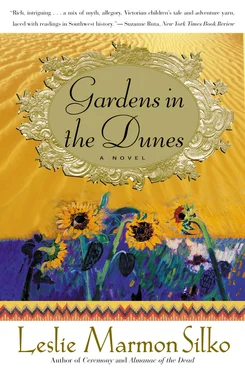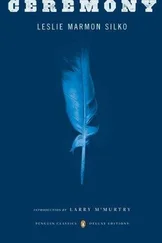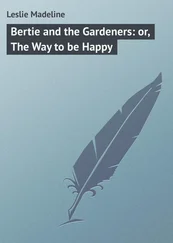The army cot was terribly uncomfortable, and in the middle of the night, Hattie pulled the bedding to the tent floor next to Indigo. She fell into a deep sleep then, and dreamed she was back in the hidden grotto in Lucca alone with a cleft oval stone, which began to softly shimmer and glow until it was lustrous and shining, too bright to look at directly. The light itself, not the stone, spoke to her, though not with words but feelings.
She woke still embraced by a sense of well-being and love; she wept from a happiness she did not understand. Later she decided the young captain’s attentions, not surprisingly, had affected her sleep. In any case, the captain and his men were gone by the time she and Indigo got dressed and repacked. The captain’s cook had set a table in the officers’ mess tent for the two of them. Eat hearty, he warned them; Road’s End was a long way from anything like real food. At the end of the meal Hattie asked if they might wrap up some biscuits to take along. Later the cook not only gave them biscuits; he rinsed out a whiskey jug and filled it with fresh water.
In the early afternoon the driver stopped to rest the horses under a lone cottonwood tree at the mouth of a gully near the road. Hattie and Indigo walked a distance away into the greasewood brush to relieve themselves; they took turns keeping watch for each other in case the driver followed.
They ate biscuits in the buggy in silence and did not try to offer the driver any. The young man fairly seethed with anger if Hattie even asked the distance they’d gone. Whenever he stopped to rest the horses, out came the knife to carve more toothpicks from green twigs off the nearest tree. The first few times she saw the knife, Hattie felt sick with apprehension, but gradually she became accustomed to his hostile behavior.
They reached the trading post at Road’s End in the afternoon before sundown. An Indian woman and her little boy were browsing in the aisles of the store, but Hattie saw very little to buy on the dusty shelves; some dented canned goods, peaches and tomatoes, matches, lamp chimneys, nails. The trader and his wife seemed barely to recognize Hattie from their stop there night before last until Indigo peeked in the door with the parrot on her shoulder and the monkey in her arms. The couple scowled in recognition, and the trader’s wife announced no animals in the store.
Hattie inquired about the three girls who recently moved there — twin sisters and their friend — but the trader shook his head while the wife turned away her face full of contempt. Don’t ask them; ask the Indian agent.
Hattie pretended to shop but she wasn’t sure she wanted to touch anything in the store; the thick gray dust on the shelves was peppered with rodent droppings. Finally she picked up a can of coffee, a can of peaches, and a can of cream corn, and asked where the sugar and flour were kept. The trader indicated two wooden bins behind the counter where he stood and she asked for five pounds of each. As he poured the flour from the scoop into the paper sack on the scale, Hattie could see the tiny weevils wiggle. The last item she bought was a half-gallon tin of lamp oil, which she regretted almost immediately because its odor seeped out no matter how tight its lid. Hattie was surprised at how much these few items cost, then remembered this was the only store for miles. The bright-colored candy balls in the glass jar next to the cash register were the most appealing items in the store, so she bought a sack of them for a quarter.
The woman and her little boy stopped their browsing to watch Hattie, and the boy’s eyes widened when he saw the big sack of candy balls. As Hattie passed them on her way out, she reached into the sack and gave the boy a handful of candy. The boy smiled and his mother nodded, and they followed Hattie.
Outside the boy and his mother watched with amazement as Indigo showed them the parrot and the monkey; they wanted to touch the monkey, so Indigo showed them how Linnaeus would shake hands. The little boy shook hands with the monkey, then looked at Indigo closely and asked if she was an Indian. His mother nudged him and whispered in his ear. “Oh,” he said and looked down.
Hattie explained Indigo was sent away to school, but now they were looking for her sister, who was living with two other girls, twin sisters.
The driver was annoyed at the delay and moved the buggy out from under the cottonwood tree to signal his impatience. Just as Hattie and Indigo were about to go, the Indian woman pointed east to the ridge above the river.
“See?” she asked, still pointing. Hattie squinted and looked in the direction she pointed, but could see nothing that resembled a house. She thanked the woman and got into the buggy after Indigo. She pointed in the same direction the woman had for the driver, who shook his head and exhaled impatiently as he picked up the reins and released the brake.
All along the river there were large fields with plows and cultivators parked nearby; melons, beans, and corn grew by the acre. There was another crop, which Indigo did not recognize at first glance — dark green bushes covered with small white flowers. Hattie pointed out the bolls of cotton Indigo mistook for blossoms. Here and there at the edge of the fields they saw little lean-tos for shade, but no people.
Above the river on an ancient floodplain, they passed a small wooden church neatly painted white amid a cluster of small wooden houses also painted white. Each house had a little garden of corn and sunflowers; some had pens with chickens or goats.
Was the buggy high off the ground, or what? Indigo wondered, because everything seemed so small. So this is what happened to your eyes if you looked at white people’s things too long. Hattie wanted to ask someone to be sure they had the right directions but no one seemed to be home. Indigo kept quiet; she knew no one would come out while the white man was there. They continued up the sandy road to the low ridge above the river bottom where the woman pointed.
Now that they were close, Indigo put both the monkey and the parrot back into their cages; her heart beat faster as they started up the last incline of river stones and sand to a little house of mud and stone with patches of new tin on its roof.
The clatter of the buggy wheels over the river cobblestones at the top of the ridge brought two heads cautiously out the doorway; they looked just alike — twins! This was the right place! She grabbed the sideboard and swung herself down to ground before the buggy was fully stopped, landing so hard her feet stung.
The sight of the loaded buggy, and a dark girl in a fancy blue dress who jumped before it even stopped, left the twins speechless for a moment. Inside Sister Salt was nursing the little grandfather but he let go of her nipple to listen, and ignored the drop of milk on his cheek. For an instant Sister was worried and gathered him up, ready to run; but Vedna turned back from the door, eyes wide, and nearly breathless. She said, “I think it’s your sister!” then followed Maytha outside.
Sister stood up with the baby just as Indigo appeared in the doorway. For an instant she almost didn’t recognize Indigo because she had grown so tall; now her features resembled their mother’s a great deal. Indigo threw her arms around Sister and she put her free arm around Indigo and they embraced each other, while the little grandfather squirmed between them. They held each other and cried until the baby got angry at being squeezed and let out a howl that made Indigo step back.
“Oh Sister! A baby!” she said, tears still running down her cheeks. “Look at him! He’s cute!” The twins stood in the doorway and watched them, but they kept glancing outside too. Finally Sister got curious and turned to look outside too; then Indigo remembered Hattie in the buggy and her pets.
Читать дальше












